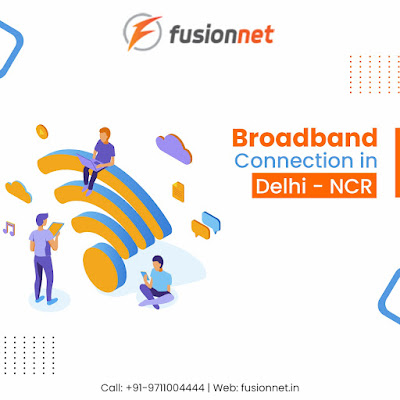A complete guide about Internet Service Provider (ISP)
A business that gives consumer’s access to the Internet is
known as an Internet service provider (ISP). Frequently, it is referred to as
simply "the supplier." Numerous technologies, such as dial-up, DSL,
cable modem, wireless, and dedicated high-speed interconnects, can be used to
convey data and are offered by internet provider Delhi.
The internet provider Delhi typically offer Internet email accounts to its clients,
typically with a variety of email addresses at the customer's choosing, so that
they can communicate with one another. Additional services might be offered as
well, including telephone and television services, as well as individual web
pages or home pages. Look for the best
internet
lease line in Delhi.
Fusionnet offer different set of services
and service combinations. Our ISPs today are typically cable corporations or
mobile phone companies that provide Internet subscriptions along with TV or
mobile services.
What is the working
process of an ISP?
Businesses and individuals pay ISPs for Internet access.
Network access points connect ISPs with one another. For their internet
connection, ISPs pay bigger, additional ISPs, who in turn pay yet more ISPs.
The signals continue to cascade until they reach a Tier 1 carrier, an ISP that
can connect to every other network on the internet without using IP transit or
shelling out settlement money.
As the business agreements to pay settlements are not made
public, it is challenging to ascertain a network's status. Additionally, before
data reaches its destination, it is always routed across multiple networks,
switching back and forth between Tier 1 carriers and Tier 2 and Tier 3 carriers
numerous times. But the problem is more complicated than just establishing one
connection to an upstream ISP. ISPs are allowed to have more than one point of
presence (PoP), which is a physical site that houses servers, routers, ATM
switches, and digital/analog call aggregators and serves as an entry point to
the Internet.
Final thoughts
Some ISPs provide free Internet connection, usually for a
set number of hours per day and at a set speed. These so-called "free nets"
typically make money by inserting banner adverts or other forms of advertising.
When it first started, the Internet was a private network linking academic
institutions and government research labs. ISPs were developed to give
employees Internet access both at home and elsewhere when universities and
colleges started providing it to their academics and other staff members.
Contact Us: +91 9711004444
Visit: https://fusionnet.in/

Comments
Post a Comment